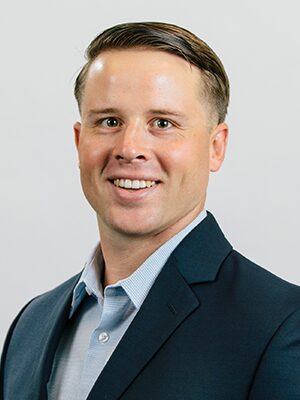In this week's podcast we return for 2023 with a lot to share. We will start off with the latest legislative news and that is the SECURE Act 2.0 where Congress made it so that we can save more for retirement. Here are some of the provisions in this new law.
Auto Enrollment and Portability
This legislation requires new 401(k) plans (as well as 401(b) plans) to automatically enroll employees in the company plan and start them off at a 3% contribution rate. This means that you will not have to opt in, but rather your retirement savings would start right away. This provision would take effect in 2025. It would also make it so that if you have a small balance in your account when you change jobs to have the custodian manage it for you. This makes it easier for you and less tempting to cash out.
Student Loan Retirement Match
So many people who have significant student loans aren't able to save for retirement early on, because their debt is too high. Before this law was passed if you chose not to make contributions to your company plan because you couldn't afford it, you didn't get a company match because you didn't contribute anything for them to match.
SECURE Act 2.0 allows companies to make a "matching contribution" to your retirement plan commensurate with your payments of your student loans. For example, if your company matches 50 cents on the dollar for contributions to your 401(k), now for every dollar you pay on your student loans would allow your company to put 50 cents into your retirement account.
529 Convertibility
In the past if you didn't use up all the money in your 529 college savings plan you had to contribute that to another person for them to use. So, if you had one child and they didn't go to college they wouldn't get to use the money you set aside. Now that will no longer be the case. Under the SECURE Act 2.0 up to $35,000 can be contributed to a Roth IRA subject to the maximum annual contribution and is treated as a contribution to the Roth IRA.
RMDs
Required Minimum Distributions are amounts that retirees need to take out of their retirement accounts so that the IRS can tax the money that they have waited years, even decades to tax while it was sitting in your IRA, 401(k) or another plan. Prior to the SECURE Act of 2020 the age where you had to start taking withdrawals whether you wanted to or not was 70.5. When the 2020 law took place that moved the age up to 72 and in SECURE Act 2.0 it gradually moves the age up to 75.
- Born in 1950 or earlier: RMD begins at age 72
- Born between 1951-1959: RMD begins at age 73
- Born in 1960 or later: RMD begins at age 75
Also starting in 2024 RMDs will not be required for Roth accounts any longer.
Qualified Charitable Distributions (QCDs)
A QCD is a distribution from your IRA to a charity whereby you can meet your RMD requirement, but not pay taxes on the amount donated. For example, if you were to give $100,000 of your RMD to a qualified charity, you would not have to pay taxes on that money. This could save you a significant amount of income tax, because if you were to take the RMD into your own bank account you would owe income tax on that amount. Assume you were in the 22% tax bracket that means you save $22,000 by doing a QCD instead of taking the money into your own hands.
Starting in 2023 the $100,000 limit for QCDs will be indexed to inflation, so the amount you can give will go up every year. While this isn't something everyone worries about, it's great for those who do.
Increase in Catch Up Contributions
You may be aware that once you are age 50 you can add additional funds to your 401(k) or IRA accounts so that you can save more money and "catch up" for lost time by saving more when likely you are earning more.
Starting on January 1, 2025 if you are 60 through 63 you can make a catch-up contribution up to $10,000 to your workplace plan. The current law for 2023 is $7,500 into those accounts. The one caveat is that if you make more than $145,000 in the year prior, your catch-up contributions will need to be made to a Roth account as opposed to a traditional account. Hopefully this will prompt more companies to offer Roth accounts.
For IRAs, you can currently make a $1,000 catch up contribution if you are age 50 or over, but in 2024 that will be indexed to inflation, so it will likely go up every year.
Roth Matching
Going forward employers will be able to make matching contributions to Roth accounts. In prior years you could only get a matching contribution on contributions to a traditional plan. The funds that are matched would be taxable, but future growth would be tax free.
Disclaimer - All content provided here is for informational purposes only and should not be considered tax, legal or financial advice. Everyone's situation is different, so if you would like to speak about your particular situation please contact us at www.redbarnfinancial.com at smoran@redbarnfinancial.com or by calling 615-619-6919




